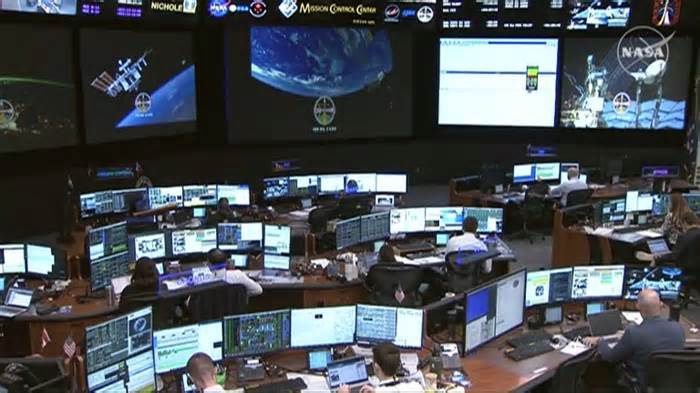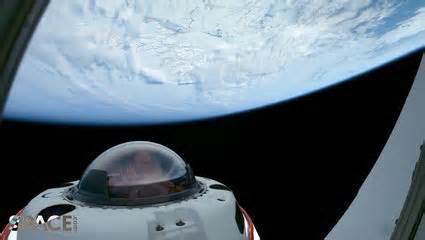
Don’t expect a space race between SpaceX and NASA. They need each other - Los Angeles Times
- by Los Angeles Times
- Mar 05, 2017
- 0 Comments
- 0 Likes Flag 0 Of 5

“SpaceX could not do this without NASA,” Musk tweeted. “Can’t express enough appreciation.”
NASA, on the other hand, has come to rely on SpaceX and other companies for transport to the space station as its funding has tightened. In today’s dollars, the agency’s budget is about half what it was at the peak of the 1960s, and down from the 1990s.
In the wake of the SpaceX news, NASA issued a statement that said it is “changing the way it does business through its commercial partnerships,” in part to “free” the agency to focus on rockets and spacecraft to go beyond the moon into deep space.
Advertisement
“The whole idea is that NASA is at the point of a spear,” said Howard McCurdy, professor in the school of public affairs at American University. “It’s like exploration of any terrestrial realm. This is the way the model is supposed to work.”
Indeed, the rapid ascent of Musk and other space industry pioneers is validation of the public-private partnership envisioned when Congress passed the Commercial Space Launch Act of 1984.
By the mid-2000s, NASA was signing contracts with the private sector to fill in for its own funding constraints and the impending retirement of the space shuttle program.
Advertisement
In 2006, SpaceX won its first NASA award for $278 million to help develop the company’s now-workhorse Falcon 9 rocket and Dragon space capsule. It later received an additional $118 million, and SpaceX contributed a total of about $454 million of its own funds to finish development, according to a NASA report.
We would not be the company that we are today without that early support from NASA.
— Gwynne Shotwell, SpaceX president
Two years later, SpaceX won a $1.6-billion NASA contract to transport cargo to the space station. The deal came as the fledgling company of about 400 employees was starting to successfully launch the Falcon 1 from an atoll in the Marshall Islands.
It was not just NASA’s financial resources and technical support that helped SpaceX, said company President Gwynne Shotwell, but also the agency’s trust.
“We would not be the company that we are today without that early support from NASA,” Shotwell said. “We would have made it, but it would have been more of a struggle, it would have taken us longer.”
A major milestone for the partnership came in 2012 when SpaceX launched its first NASA cargo load, making it the first private company to send a spacecraft to the space station.
Marco Caceres, senior space analyst at the Teal Group, said the NASA supply missions gave SpaceX “almost instant credibility.”
“Having NASA as an anchor client allowed them to have enough revenue flow so that they could establish themselves and eventually diversify and get some commercial contracts and eventually to be able to get into the military establishment,” he said.
Advertisement
Today, SpaceX and Boeing Co. are developing separate crew capsules as part of NASA contracts to transport astronauts to the space station.
SpaceX noted that this NASA program provided most of the funding to develop the Dragon 2 spacecraft, which will make the moon trip. It is planning to conduct the first test flight of the Dragon crew capsule in November, followed by a flight test with humans in May 2018.
Once operational crewed flights to the space station are underway, the company said it would launch its Dragon capsule atop the Falcon Heavy rocket, which was developed with SpaceX funds, for the lunar mission in late 2018.
Other well-known, newer space companies have also recently been awarded NASA contracts, including Amazon.com Inc. founder Jeff Bezos’ Blue Origin and British billionaire Richard Branson’s Virgin Galactic.
Both of those companies intend to target the suborbital space tourism markets, though Blue Origin has also unveiled plans for a launch vehicle called the New Glenn, which the company has said could lift astronauts to low-Earth orbit or even beyond.
Blue Origin is interested in developing a lunar spacecraft and lander, and eventually, a delivery service for the moon, according to a white paper obtained by the Washington Post that the company sent to NASA officials and President Trump’s transition team.
Advertisement
Please first to comment
Related Post
Nexstar set to stream NASA Live
- Jun 30, 2025
Amazing SpaceX Dragon Views From The Fram2 Mission
- Jun 30, 2025
Stay Connected
Tweets by elonmuskTo get the latest tweets please make sure you are logged in on X on this browser.






 Energy
Energy


















